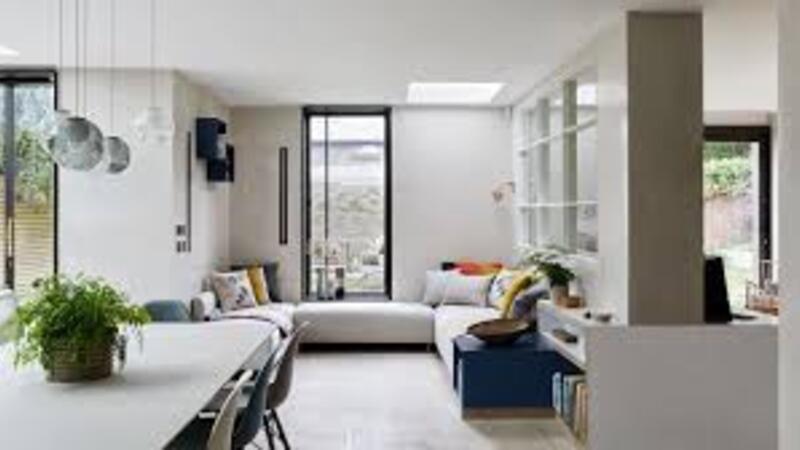It is more than just making things neat to live in a structured environment—peace of mind and fiscal equilibrium also ensue. Daily processes go smoothly when everything is in its place, and no time is squandered looking for what is misplaced. How Organized Living Supports a Healthier Mind and Budget enables prioritization over diversion, allowing the mind the serenity needed to process the intellect effectively.
A clean home is also good for your budget. Being aware of what you have avoids excess spending and promotes thinking before spending. Basic systems such as labeled storage, computerized planners, or budgeting apps will clear the clutter and prevent fuss. Orderly living enables the formation of stability in both your mental and financial life, as we learn that order is the key to general well-being.
Clutter’s Hidden Cost on the Mind
Clutter can quietly drain mental energy. When spaces are filled with unused items or disorganized belongings, the mind struggles to focus. Studies show that cluttered environments increase stress levels, lower productivity, and even impact sleep quality. Organizing your space helps create a sense of control, reducing anxiety and boosting motivation. Many people use trusted options like NSA Storage to safely store seasonal items, documents, or sentimental belongings, keeping their homes clear and peaceful. Out of sight doesn’t mean out of mind—it means freedom to think clearly.
A tidy home or workspace promotes better decision-making and creativity. Less clutter equals less distraction, allowing you to focus on what truly matters. The mental relief that comes from order often leads to more balanced emotions and greater daily satisfaction.
Myth vs reality: Many believe that organization takes too much time or effort. In reality, small, consistent steps—like decluttering one drawer a day—bring lasting calm without overwhelming your schedule.
Saving Through Smarter Organization
Being How Organized Living Supports a Healthier Mind and Budget isn’t just good for your mind—it’s good for your wallet. When you know exactly what you own and where it’s stored, unnecessary purchases disappear. Many people spend more than they realize on duplicates or replacements for items they already have.
Smart organization creates awareness of what’s truly needed. Keeping track of groceries, supplies, and bills reduces waste and prevents missed payments. Planning ahead through budgeting apps or simple checklists also helps align spending with goals.
Organization can even extend to energy use—knowing where things are saves time, prevents overbuying, and minimizes stress shopping. A structured environment encourages more intentional spending, which over time builds financial confidence. In short, order brings clarity—not just to your space, but to your finances too.
Simplifying Daily Habits
When readers start organizing their spaces, a few common questions often arise. A tidy lifestyle may seem complex at first, but small steps make it easy to maintain. Below are some of the most asked questions about creating order that supports both mental health and financial wellness.
How can I start organizing my home without feeling overwhelmed?
Begin small—focus on one drawer, shelf, or corner at a time. Setting a timer for 15 minutes can make the task manageable and rewarding. Gradual progress builds momentum and prevents burnout.
What are the best low-cost organization methods?
Repurpose what you already have. Use jars, baskets, or boxes instead of buying new organizers. Label containers clearly and keep frequently used items within easy reach.
Does being organized really improve mental health?
Yes. Decluttering reduces stress and gives your mind more space to think clearly. Studies link organized environments to better focus, mood, and sleep.By simplifying daily habits, you naturally support both your mind and your wallet—creating a foundation for lasting balance.
Tools That Make Life Easier
The right tools make organization enjoyable instead of a chore. With just a few simple habits and essentials, keeping your home and budget in order becomes second nature.
Fast actionable tips:
- Keep a donation box ready for unused items.
- Track spending weekly with a simple app or notebook.
- Store similar items together to save time.
- Set monthly reminders for bill payments.
- Clean surfaces daily for instant calm.
Using small tools and routines builds consistency and confidence over time. Staying organized doesn’t require perfection—it’s about steady progress that fits your lifestyle.
Common mistakes to avoid: Many people buy expensive organizers they never use or try to change everything overnight. Others forget to maintain their system, letting clutter return. Small, steady habits work best for lasting organization.
Stories of Balance and Clarity
Professional organizer Judy Taylor described the case of one client who was plagued by clutter as well as money woes. The client had the habit of purchasing duplicate items she could not locate, ranging from cleaning items to kitchen utensils. Her house was stressful, and even her spending habits had the same uncontrolled quality. They collaborated on the establishment of small stores for everyday items and a straightforward budget plan. In two months’ time, spending was significantly reduced, and money time anxiety was brought under control as well.
This was a simple manipulation that revealed how organizing impacts something beyond the tangible environment—it imprints on the way a person reasons and feels. With the clearer environment, the client was more focused and purposeful in the decisions she was making. It filtered into the rest of her life, bringing her feelings of confidence and calm.
Benefits versus risks: Pay-offs from organized living are lowered stress, improved budgeting, and enhanced time management. Primary risks are when organizing devolves into perfectionism—too much time or money on systems rather than useful movement forward. A loose-fitting approach maintains equilibrium without tension.
This narrative is evidence that organizing is not about rigid schedules—it’s about establishing a home that facilitates individual development, mental health, and fiscal empowerment.
Living Mindfully Every Day
An organized lifestyle creates the space to think, rest, and plan ahead. It turns small daily choices into habits that protect your time, energy, and finances.Each drawer you tidy or list you make adds structure to your life. Over time, that structure builds peace, clarity, and control.How organized living supports a healthier mind and budget reminds us that balance isn’t about doing more—it’s about doing what matters most with purpose and simplicity.More details to WORLD US MAGAZINE visit.


